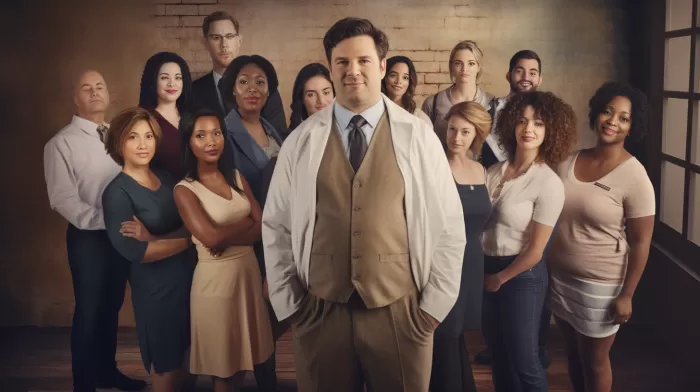It’s alarming, but doctors are not doing enough to combat one of the most widespread health problems affecting people around the globe. The issue is that they can’t even recognize the problem at hand. Researchers at the University of Liverpool discovered that the sheer number of overweight individuals has led people, including trained healthcare professionals, to perceive being overweight as the new normal. As a result, they are failing to encourage people to adopt healthier lifestyle choices that will help them shed those extra pounds.
The research found that most people can’t distinguish between someone of healthy weight and someone who is overweight or obese. Most of us underestimate how much other people weigh, which means we wrongly believe being overweight falls within the healthy weight range.
Doctors Struggling to Recognize Unhealthy Weight
When this research was narrowed down to focus on the perceptions of general practitioners (GPs), it became clear that even trained health professionals struggle to identify when someone is overweight. “We wanted to find out if people can identify a healthy, overweight, or obese person just by looking at them,” says researcher Eric Robinson. “Primarily we found that people were often very inaccurate, and this included trainee doctors and qualified doctors too. Moreover, we found that participants systematically underestimated when a person was overweight or obese.”
Robinson believes that this distorted perspective is directly impacting the quality of medical care we receive. “Our study of GPs also found a tendency to underestimate weight, which has important implications as it means that overweight and obese patients could end up not being offered weight management support or advice.”
A Severe Misconception with Dangerous Consequences
The alarming fact that doctors are missing the mark when it comes to identifying obesity or excessive weight gain puts millions of people at risk. This misconception may lead to the worsening of obesity-related health issues such as cardiovascular diseases, diabetes, and certain types of cancer. People need appropriate guidance on maintaining healthy body weight to avoid these life-threatening medical conditions, and doctors play a crucial role in providing such advice.
A Warped Normal
The normalization of being overweight is further fueled by how society represents the human body. Media, fashion, and advertising industries all play a significant role in setting unrealistic standards of what the ideal body should look like. These standards undeniably contribute to the societal shift in our perception of what a healthy weight truly comprises.
The Need for Better Education and Awareness
For the sake of public health, it’s vital that we bridge the gap between societal weight norms and medical standards. There’s an urgent need for better education and awareness about what constitutes a healthy body weight. This education should inform both the general public and healthcare professionals, as clearly, both are lacking in their understanding of this critical issue. People should be encouraged to calculate their Body Mass Index (BMI) as a first step in determining whether they’re within the healthy weight range.
Introducing nutrition education into the medical curriculum is another approach that healthcare institutes can adopt. This approach could enable future doctors to help their patients make better lifestyle choices based on sound evidence. Moreover, making nutrition counseling a routine part of patient visits could facilitate better results in promoting a healthy weight range.
Setting Realistic Goals for a Healthier Future
It’s essential that we shift our mindset from merely focusing on achieving the perfect body or reaching a magic number on the scale. Rather, we should strive to be healthy, which will vary for each person. Reaching and maintaining a healthy weight should involve a combination of well-balanced nutrition and regular physical activity.
Let us remind ourselves and our healthcare professionals that the “new normal” shouldn’t mean accepting unhealthy weight gain or obesity. It’s time to challenge this emerging norm, raise awareness, and educate ourselves about the importance of maintaining a healthy body weight to lead long, productive, and healthy lives.



